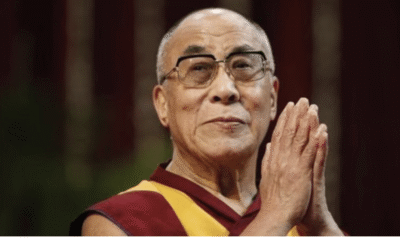
|
Getting your Trinity Audio player ready...
|
(The article was originally published by The Print on February 3, 2022. Views expressed are personal.)
Debate over civic and cultural nationalism is at least a century old. Hans Kohn, an eminent American historian of nationalism, was the first to raise this dichotomy, influencing the Western studies on nationalism in a big way. Kohn argued that national identities in the Ancient Greek and Jewish societies were developed around certain cultural traits like “the idea of the chosen people, the emphasis on a common history and future, national messianism, and the supreme loyalty to political community”. In his view, the Enlightenment era in Europe had led to a major transformation, paving the way for formation of nation-states based on the concept of civic or constitutional nationalism.
Kohn’s major works were published around the time of World War 2. Scholars misinterpreted Hitler and Mussolini’s fascism as ‘nationalist excesses’. Kohn’s views were immediately lapped up without proper scrutiny. Cultural nationalism was dismissed as Hitlerian and fascist, and a clamour for the ill-defined civic nationalism came to dominate the discourse.
Hitler was not a nationalist — neither cultural nor civic. He was a race supremacist with an imperialist mindset. The ‘Third Reich’ he talked about was modelled on the ‘First Reich’, which was the German Holy Roman empire. In his autobiography, Mein Kampf (My Story), Hitler explicitly rejects national identities as “misbegotten monstrosities”, and declares his mission as “preservation and advancement of a community of physically and psychically homogeneous creatures” by “assembling and preserving the most valuable stocks of basic racial elements”. He wanted to raise this race to a “dominant position” until it became a “master people” and “mistress of the globe”.
Kohn’s civic nationalism argument came under scrutiny of many academics later for its oversimplification of the nationalism question. A healthy debate continues in the academic world over definition and relevance of nationalism, interspersed sometimes with vicious interjections by the Left-Liberal apologists and closet communalists.
Ansari’s argument doesn’t apply to India
Former Vice President of India Hamid Ansari raked up this debate once again recently. In a brief address during the so-called Congressional briefing hosted by the Indian American Muslim Council (IAMC) on the eve of India’s Republic Day, Ansari made critical comments about governance and rule of law in India. “In recent years, we have experienced the emergence of trends and practices that dispute the well-established principle of civic nationalism and interposes a new and imaginary practice of cultural nationalism,” he alleged. He accused the “electoral majority” of presenting itself as a “religious majority and monopolise political power”.
Ansari is a scholar and a former diplomat. He has every right to initiate a healthy debate over concepts like cultural and civic nationalisms. But as someone trained in diplomatic nuances, he should have known the right time and forum to trigger such a debate.
Imprudence notwithstanding, Ansari was not alone in raking up the debate. In the West, the arrival of immigrants from the Middle East and North Africa has triggered the debate on civic nationalism. The European liberals had initially welcomed these migrants with the slogan of “multiculturalism”. But when the trickle became a flood leading to serious demographic and social challenges, including the resurgence of extreme Right-wing parties in several countries, majority of them abandoned that fad. Former German Chancellor Angela Merkel even called multiculturalism a ‘sham’.
But some continue to argue that the immigrants shouldn’t be forced to adopt the culture of the host country while granting them equal citizenship as the natives, and that they should be allowed to follow their own culture, language, customs, and practises. This multiculturalist argument came to be identified with the concept of civic or constitutional nationalism.
Ansari’s comments should be seen in the background of this debate. The immigrant question, which is central to the civic nationalist argument, doesn’t apply to India. The minorities in India – especially the Muslims and Christians – are not immigrants, but very much a part of this national society for millennia. They didn’t migrate. They only changed religion during the course of history. The cultural nationalists argue that mere change of religion doesn’t uproot them from their cultural and civilisational identity.
Indian nationalism has many takers
A civic identity for minorities, distinct from their socio-cultural identity, was a 19th century construction by the communalist leadership in India. The British had precipitated it through separate electorates on religion basis. Muhammad Ali Jinnah had immediately lapped up this so-called civic or constitutional arrangement as a compromise for Muslims to remain in India. That was the starting point of social disintegration in India, which finally culminated in the Partition.
Returning to civic nationalism discourse is tantamount to a rekindling of Jinnah’s politics.
Indian nationalism was always viewed by its leaders as not merely a civic or constitutional agreement but a cultural-civilisational phenomenon. Not just leaders like Tilak, Gandhi, Savarkar, and Aurobindo, even Jawaharlal Nehru, the demigod of liberalism, never disputed the ‘cultural’ aspect of Indian nationhood. In his famous ‘Tryst with Destiny’ address at midnight on 14 August 1947, Nehru exhorts that “the soul of a nation, long suppressed, finds utterance”.
“At the dawn of history India started on her unending quest, and trackless centuries are filled with her striving and the grandeur of her successes and, her failures. Through good and ill fortune alike she has never lost sight of that quest or forgotten the ideals which gave her strength,” he adds. What soul was he talking about? What nation? What ideals?
Delivering the annual convocation address at the Aligarh Muslim University (AMU) in 1948, Nehru frankly questions the students: “I have said that I am proud of our inheritance and our ancestors who gave an intellectual and cultural pre-eminence to India. How do you feel about this past? Do you feel that you are also sharers in it and inheritors of it and, therefore proud of something that belongs to you as much as to me? Or do you feel alien to it and pass it by without understanding it or feeling that strange thrill which comes from the realisation that we are the trustees and inheritors of this vast treasure?”
Nehru said he was asking those questions because “in recent years many forces have been at play diverting people’s minds into wrong channels and trying to pervert the course of history”. Those forces appear to be active even now.
As regards pluralism in India, the Constitution offers fullest religious freedom which was upheld by all the successive governments. Thomas Jefferson overthrew the Protestant constitutional and religious order in Massachusetts and Connecticut. Mormon religious practises like polygamy were banned by federal governments in America. The British parliament had designated Anglican bishops to the House of Lords. In India, such State intervention in religion, although desired in some cases, never happened.
The civic nationalists may understand that India’s pluralism, too, is a product of its cultural nationalism.




Excellent sir